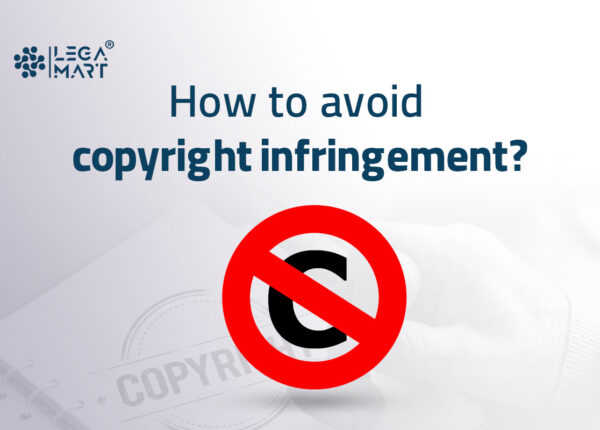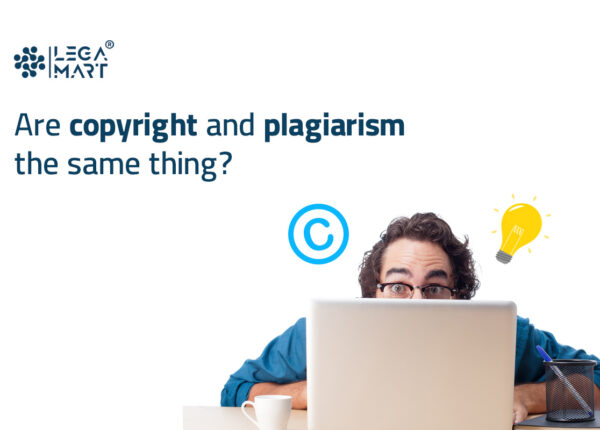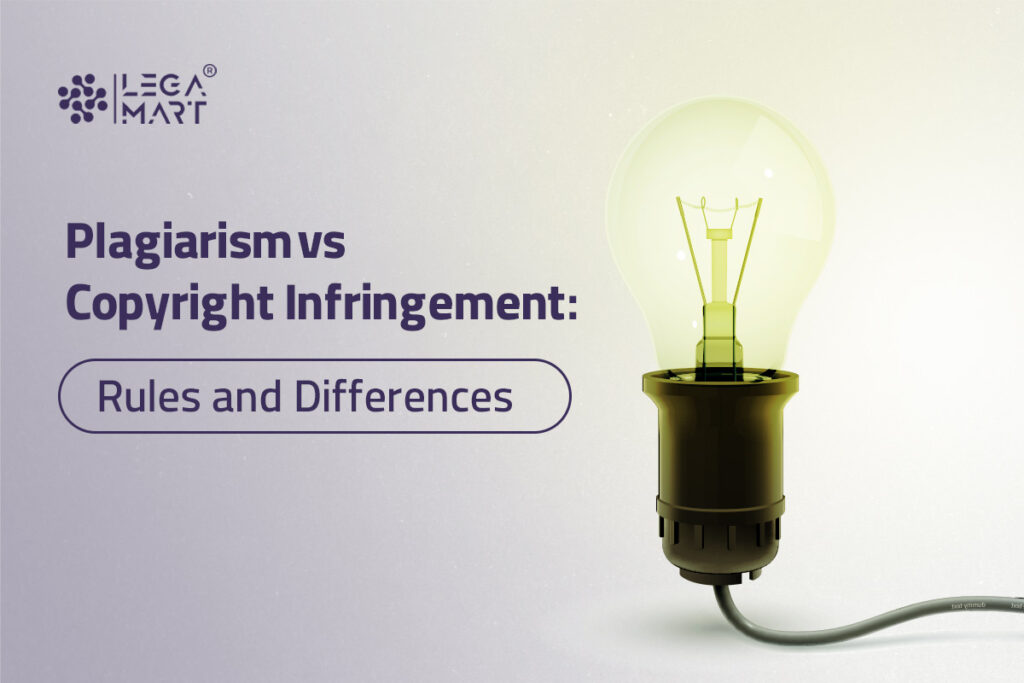Plagiarism vs copyright infringement can be characterized as different subjects and should not be used interchangeably.
“One of my students has written an article where he has copied every sentence from another article which is already published under the name of the original author. However, my student is also trying to publish the article and passing off someone’s work as his own. So, I want to know whether it’s an act of plagiarism or copyright infringement.”
Introduction
In today’s world, where technology has been much advanced and everything can be found on the internet, it’s easy for people to misuse other’s content or work and use it as their own without the permission of the original creator. Students also commit this by submitting college assignments as their own, initially written by someone else. In this article, the author has discussed the difference between plagiarism vs copyright infringement and how to differentiate copyright infringement and plagiarism as these two terms sound very similar, but in reality, there are a lot of differences that the common people should be aware of. There are various laws of copyright infringement in different countries, such as UAE.
Plagiarism vs copyright infringement: plagiarism is an ethical violation, whereas copyright infringement is illegal (except in some cases of innocent infringement). Plagiarism can be defined as when someone commits to passing off someone else’s work as their own. In contrast, copyright infringement comes into effect when someone uses copyrighted material without taking the permission of the copyright owner. However, both copyright infringement and plagiarism have one thing in common: both cases happen without the original owner’s permission.
What is plagiarism?
Everyone knows that stealing anyone’s item or material is considered a crime, but stealing someone’s ideas, quotations, illustrations, and words is known as plagiarism which isn’t a crime but an ethical issue. Plagiarism can occur in different forms and situations. It usually happens when a person uses someone else’s work and claims it as his own; he doesn’t even give any credit to the deserving person.
Generally, the act of plagiarism occurs in academics, in both physical mode and electronic modes. When a student copies everything from an article written by someone else, doesn’t provide any footnotes or citations, and submits it under his name. Plagiarism can also occur in the case of unpublished articles such as lecture notes or any notes made by other students. Still, if someone uses it without giving proper credit to the author, it will lead to plagiarism. Moreover, plagiarism can occur in various forms, such as:
- Submission of someone else’s work or ideas as one’s own.
- Failing to add citations that should contain true or accurate information.
- If you’re adding quotations, it should be within quotation marks, and you should provide the citations to give credit to the original author.
- Changing and duplicating the words of a sentence without providing the proper citation.
In the field of academics, the act of plagiarism is common, and many students commit it without being aware of what plagiarism is. However, plagiarism has severe consequences and penalties, varying from mark deduction to suspension from the college. The range of punishment depends upon the seriousness of the case. However, plagiarism can be prevented if someone gives full credit through citations to the original author.
Examples:
- Using sentences, graphs, photographs, and charts without citations or footnotes.
- Misrepresenting a sentence or representing a sentence in other ways, but the ideas are not original.
- Paraphrasing the words without giving the proper citation.
- Missing citations on quotes.
- Copying different sentences from different writers.
What are some consequences of plagiarism?
Plagiarizing another person’s work and claiming it as one’s own carries significant repercussions. When an accusation of plagiarism is made, it is necessary to establish proof of the offence. The consequences one faces will generally depend on the type of plagiarism committed. Furthermore, the severity of these consequences can differ depending on the circumstances and the specific context in which the plagiarism took place, for example;
Where plagiarism is done by a student, unintentional or intentional, the educational institutions determine the penalties for such acts. Particularly, unintentional plagiarism may result in receiving no credit for the assignment or a warning from the teacher. In contrast, Intentional plagiarism can lead to failing the assignment, redoing it, failing the course, or even suspension or expulsion from the school in severe cases of repeated plagiarism.
Where plagiarism is done by professionals, the repercussions can be severe, ranging from potentially ending a career and making it difficult to find employment in the same field. Professionals may also be asked to leave their job or face termination, while public figures often retire from public life due to plagiarism.
Severe cases of plagiarism can result in legal action for violating copyright laws, leading to civil lawsuits and significant financial damages for the plagiarist. The media attention surrounding such lawsuits further damages the plagiarist’s reputation. Generally, plagiarism goes beyond being an ethical concern; it can also have significant legal consequences.
What is copyright infringement?
Copyright protection is provided to the ones with exclusive rights to reproduce their work, known as the creator or the original author of a work of authorship. To obtain copyright protection, the work needs to be original and fixed in a tangible medium. Some examples of original works that need copyright protection are computer software, music, literary work, photographs, novels, online content, etc. Usually, the owners obtain copyright protection to enjoy exclusive rights and to gain profits from it. However, it’s their choice if they want to grant permission to someone else to use or reproduce their work through compulsory licensing agreements, or else they can sell the work.
Violating the copyright law can lead to copyright infringement. Now, to be precise, we can say that copyright infringement comes into action when one uses copyrighted material without the permission of the original creator or author. The same is regarded as a violation of copyright law. For example, in India, Section 51 of the copyright act 1957 states that copyright can be said to be infringed when a person obtains it without the permission of the copyright holder who can reproduce his work.
Examples
- A person is free to record any TV program or movie in theatres; however, if he transfers or distributes it to others, it will amount to copyright infringement.
- If a person uses someone else’s music in his music video and uploads it on the internet.
- If a person tries to or downloads any movie or song from any unauthorized website
What are the factors considered when determining copyright infringement?
Copyright law grants creators exclusive rights over their works. Unauthorized use of a copyrighted work without permission or meeting the fair use criteria constitutes copyright infringement. Fair use provides a defence against copyright infringement claims, allowing specific uses considered permissible. However, determining the scope of fair use and its boundaries can be intricate. In assessing whether a particular use falls under the fair use categories, courts are obliged to consider the following factors:
Purpose and character of the use: This pertains to how the copied material is utilized, for example, if the use is noncommercial, nonprofit educational, scientific, or historical.
Nature of the copyrighted work: Using material from primarily factual works is generally more likely to be deemed fair than purely fictional works.
Amount of copyrighted work used: Borrowing small portions of material from an original work is more likely to be considered fair use compared to borrowing large portions. However, it’s important to note that even a small taking may be unfavourable to fair use if it constitutes the “heart” or core of the work in certain situations.
Effect of the use upon the potential market for or value of the copyrighted work: The impact of the use on the potential market for the copied work is also considered. If the alleged infringing work negatively affects the market for the original work, this factor weighs against fair use.
How to avoid copyright infringement?

When you utilize content that is copyright-protected without the owner’s consent, you are engaging in copyright infringement. Here are some pointers to prevent copyright violations:
Know who owns what content: At its most basic level, the original content’s creator and owner are the only ones with authority to use, copy, publish, and provide licenses to that content. Thus, you risk violating copyright if you employ stuff that wasn’t your creation or that you didn’t purchase.
Use no content without permission: It’s crucial to never utilise another person’s content without getting permission in writing. The ownership of the copyright will be transferred from the original creator to you via a signed copyright agreement, which is essential. Asking for permission is the simplest and most important strategy to prevent copyright infringement.
Make original material: The idea of the original expression is critical to copyright legislation. By utilising your original ideas and drawing on your domain-specific expertise, you may present the information uniquely. Even if others have already discussed this idea or this notion, come up with something original.
Record your work: Your personal work should be documented. Sometimes referred to as a defence, this is essentially a denial of any copying. You have to demonstrate that you didn’t replicate anything and came up with your idea.
Consult a lawyer: Intellectual property law’s complicated field of copyright can have major legal repercussions if its definition and operation are not understood. To avoid copyright infringement and ensure that your work complies with the law, seek legal advice.
Laws related to plagiarism and copyright infringement in India and US
India
- There aren’t any direct provisions or statutes regarding plagiarism in India, but Section 57 of the Copyright Act 1957 provides the original author’s rights to claim authorship of their work.
- Section 57 also includes the term “special rights” for the original authors. Here, the special rights are considered moral rights and say no to plagiarism.
- Section 63 of the Indian copyright act 1957 recognizes copyright infringement as a crime and provides punishment for copyright infringement and violation of Section 57. The punishment will be a fine and imprisonment, ranging from 6 months to 3 years.
- Section 51 of the Indian Copyright Act specifies when an action is considered copyright infringement.
US
- In US copyright law, Copyright infringement is stated in 17 USC 106, according to which copyright infringement occurs when someone creates or distributes copies of the protected work.
- Copyright Act § 504 gives the owner the right to recover in the form of statutory damages and actual damages or profits.
- Under the US Copyright law, plagiarism is not considered illegal or a crime, but it’s morally unacceptable. However, as mentioned before, a person can claim damages depending on many factors.
- However, it’s rare, but a person committing plagiarism can be charged with fraud. Under US law, fraud is demonstrated in the following ways:
- Misrepresentation of a fact.
- Having the proper knowledge of his actions.
- Who is suffering because of misrepresentation, and who relies on that?
Plagiarism vs Copyright Infringement
So, after understanding the comparison between plagiarism vs copyright infringement, we can now differentiate between plagiarism and copyright infringement through these five points:
- Plagiarism is considered stealing someone else’s work or ideas and passing them off as their own. In contrast, Copyright infringement occurs when someone uses copyrighted material without the permission of the copyright holder.
- Plagiarism is an ethical issue, whereas copyright infringement is a legal issue.
- Plagiarism involves copying any work. It’s not necessary that work should be copyrighted, whereas copyright infringement involves only the copyrighted work.
- Plagiarism involves any work in both physical and electronic mode, whereas copyright infringement involves copyrighted works such as literary, artistic, cinematographic, etc.
- Plagiarism is not considered a crime but an unethical issue that involves penalties. In contrast, copyright infringement is considered a civil crime that can have severe punishments, depending upon the seriousness of the case.
Are copyright and plagiarism the same thing?

Plagiarism and copyright infringement are often mistaken for one another, but they are different. While copyright infringement is illegal, plagiarism is unethical. The unacknowledged use of another person’s work is the most accurate definition of plagiarism. Contrarily, copyright infringement is the unlawful use of another person’s creative work. There is a significant difference between ethics and law.
While breaching the law can have severe consequences, breaking ethics destroys your reputation and credibility. Using another person’s work without their permission is known as copyright infringement, whereas plagiarism refers to using someone else’s work as your own.
Copyright is frequently violated by plagiarism. However, not all copyright infractions involve plagiarism. Regardless of whether a piece of writing is protected by copyright, it is still unethical to plagiarize it; nevertheless, it is legal to violate someone else’s copyright without doing so. For instance, if a person must cite someone else’s work in their book without consent and without claiming ownership, that person would be infringing on the copyright but not guilty of plagiarism.
Plagiarism isn’t always a copyright violation, though. Because not all works are still covered by copyright, using an unprotected piece would constitute plagiarism rather than a copyright violation.
Frequently asked questions
Can plagiarism and copyright infringement overlap?
Plagiarism and copyright infringement can intersect in certain situations, but it’s important to note that plagiarism does not always equate to copyright infringement. Likewise, there are instances where plagiarism may not be present, but copyright infringement can still occur.
How does plagiarism link to copyright?
Plagiarism occurs when ideas are copied without proper attribution, while copyright infringement relates explicitly to the unauthorized reproduction of a particular fixed expression, such as a sequence of words or the use of an image. Avoiding plagiarism focuses on correctly acknowledging intellectual credit, whereas copyright protects revenue streams associated with creative works.
Conclusion
We learned that although the concept of plagiarism vs copyright infringement may sound similar, there are many differences between them. Most people find it difficult to differentiate these two terms and have some misconceptions about them, which leads to more copyright infringement cases. Legal services offered at Legamart can assist in navigating these complexities. For example, Legamart lawyers can help clarify the distinctions between plagiarism and copyright infringement, ensuring that individuals understand their rights and obligations.





